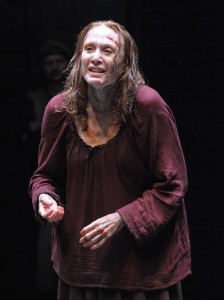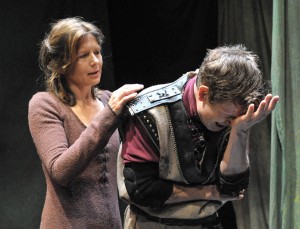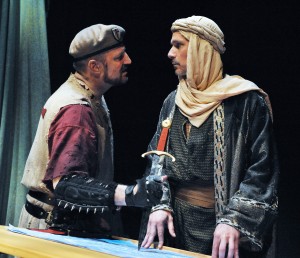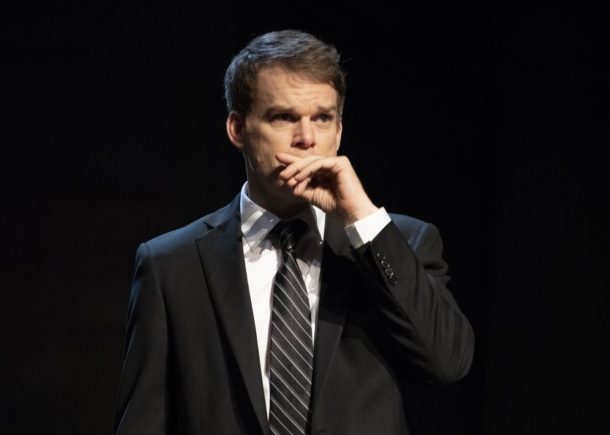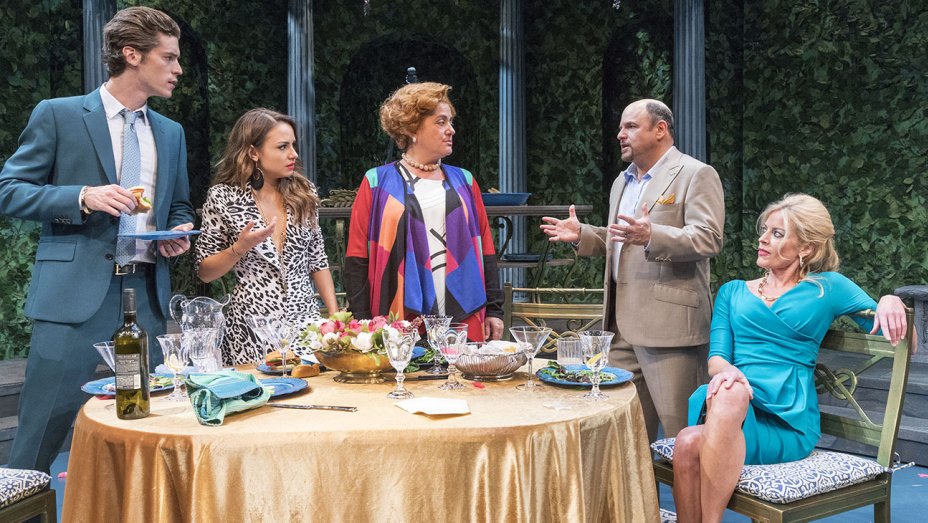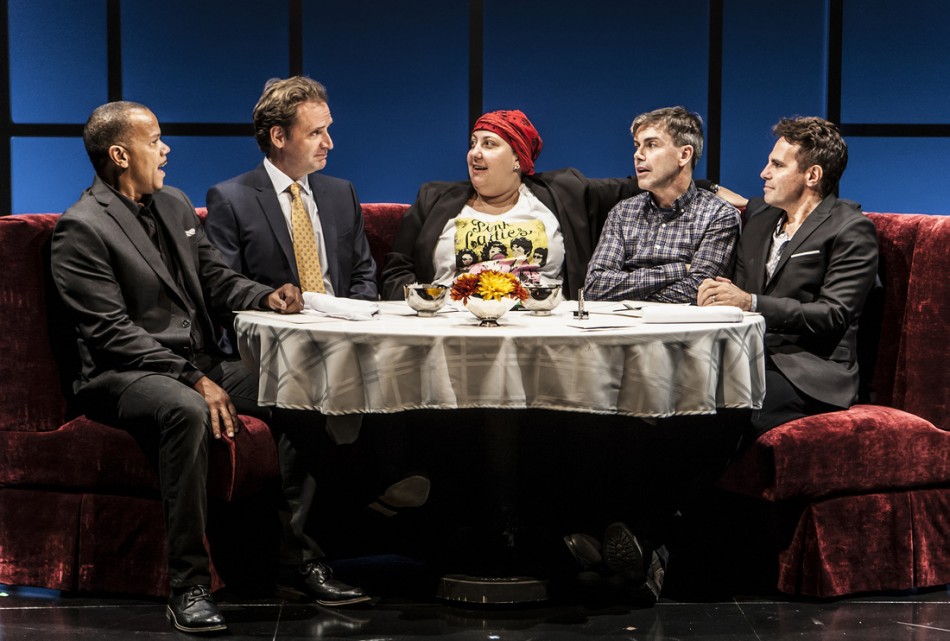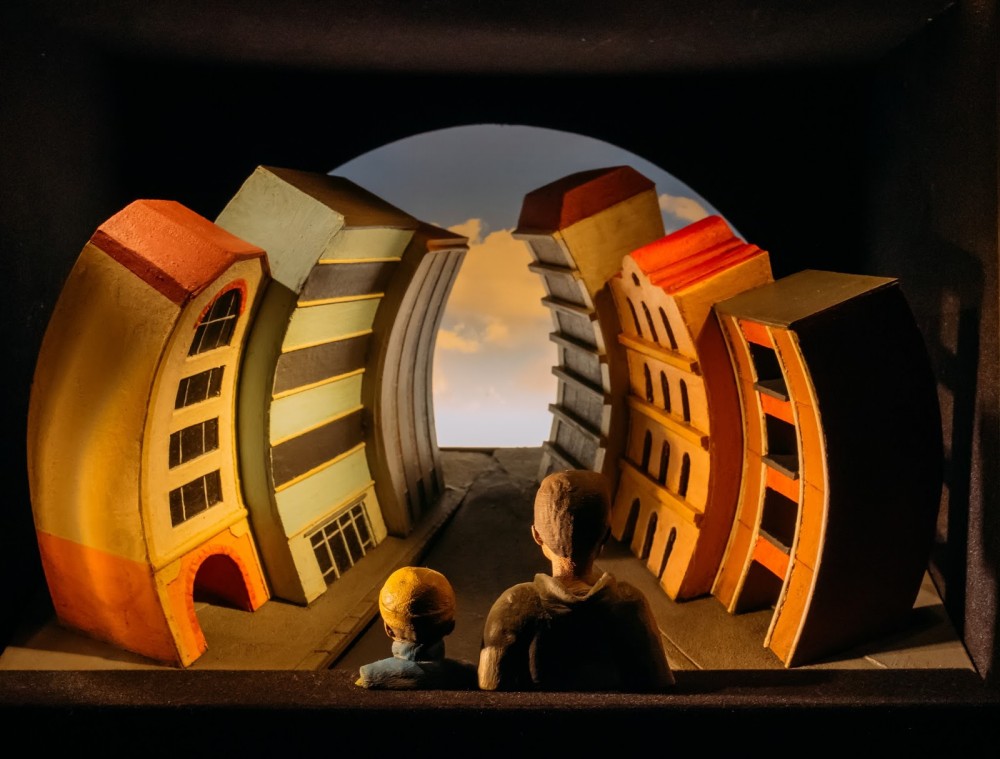by JK Clarke
To fully comprehend Howard Barker’s multi-layered drama of war and society, one would need a thorough reading of the play itself. Or perhaps a group discussion. Or a class. Fortunately, that doesn’t take away the ability to become immersed in, and entertained by, Potomac Theater Project’s (PTP/NYC) grand production of The Castle currently playing at the Atlantic Stage 2 through August 4.
It’s not something we stop to think about often, but what happened when the able-bodied men left England and Europe to join God’s army to fight the “heathens” during the Crusades of the 11th and 12th centuries? Much, suggests The Castle, in the way of creating a peaceful, matriarchal, agrarian society with meadows of flowers and empowered women and elderly men helping each other survive. But the knights returned, hardened by war and poisoned by dogma, so much so that they would strike down the women grateful for the return of their young “stallions” after so many years of “old men . . . who only move by memory.” The story is, on many levels, an allegory for the harm that comes of progress and technology. But it is also an indictment of the unreasonableness created by man’s overarching need for power. A castle must be built bigger and bigger again, because presumably one’s neighbor is doing the same. It’s a dark vision of mankind, indeed.
Conveying so many messages with such a complex text is a monumental task — a giant construction of castle-like proportions, if you will — but director Richard Romagnoli does a remarkable job. The production is transfixing and does not lull, thanks also to riveting performances by Jan Maxwell as Skinner (the “witch”), Jennifer Van Dyck as Ann (her lover and wife to a returning and deranged Crusader); and David Barlow as Stucley, the psychopathic and tormented knight who has returned to a changed landscape — which he changes even further — after seven years of travel and battle. Buttressing these fine performances are Christina Fox as Cant, a young woman at first grateful for the return of the men; Brent Langdon as Nailer, an often astonished yet accommodating priest; Quentin Maré, the soft-spoken and vulnerable Muslim engineer brought back to build the fortress; and the terrific Robert Zukerman who plays the older impregnator, Hush, the builder Holiday and the Judge, Pool. There are, in fact, no weakness in the cast.
As director Romagnoli notes, “obvious sounds associated with a large construction site” is vital to the play, and sound designer Cormac Bluestone immerses the audience in such believable ambient percussive sounds of building and industry that, were it not for the Atlantic’s being four stories below ground, one would be certain of interference from street noise. Jule Emerson’s cross-period, but non-conflicting, costuming must also be noted.
The Castle can and should be seen multiple times, for there is no doubt that different elements would emerge with each viewing. It is less common to see modern theater so dense and multi-themed, and it is refreshing when it is done so well. Barker’s own theater company is called “The Wrestling School,” and indeed one comes away from The Castle feeling as if one has attended an intense sporting event, either as participant or spectator.
The Castle through August 4 at The Atlantic Stage 2, 330 W. 16th Street (between 8th and 9th Avenues). http://ptpnyc.org/
Photos: Stan Barouh



